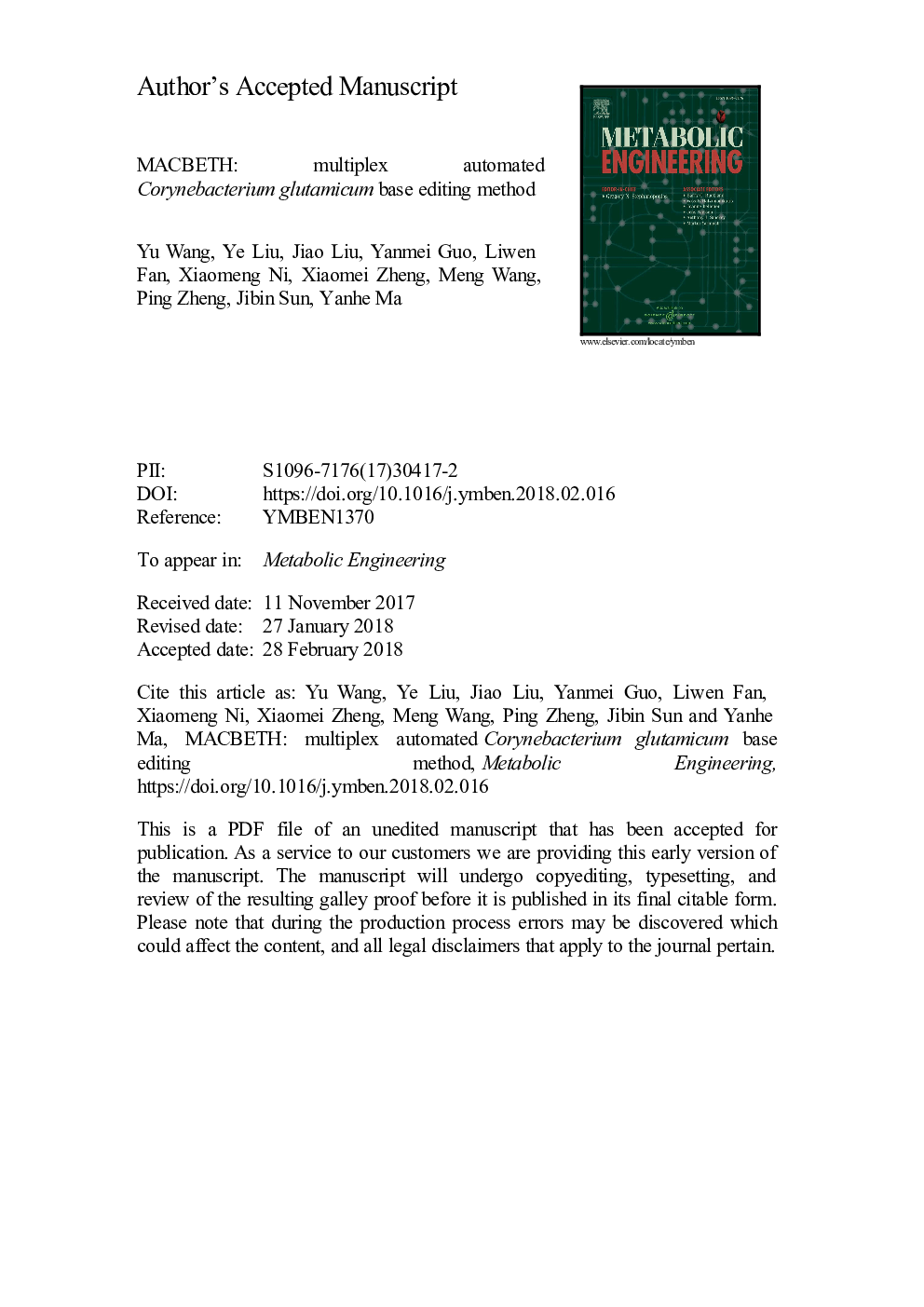| Article ID | Journal | Published Year | Pages | File Type |
|---|---|---|---|---|
| 6494079 | Metabolic Engineering | 2018 | 46 Pages |
Abstract
CRISPR/Cas9 or Cpf1-introduced double strand break dramatically decreases bacterial cell survival rate, which hampers multiplex genome editing in bacteria. In addition, the requirement of a foreign DNA template for each target locus is labor demanding and may encounter more GMO related regulatory hurdle in industrial applications. Herein, we developed a multiplex automated Corynebacterium glutamicum base editing method (MACBETH) using CRISPR/Cas9 and activation-induced cytidine deaminase (AID), without foreign DNA templates, achieving single-, double-, and triple-locus editing with efficiencies up to 100%, 87.2% and 23.3%, respectively. In addition, MACBETH was applied to generate a combinatorial gene inactivation library for improving glutamate production, and pyk&ldhA double inactivation strain was found to improve glutamate production by 3-fold. Finally, MACBETH was automated with an integrated robotic system, which would enable us to generate thousands of rationally engineered strains per month for metabolic engineering of C. glutamicum. As a proof of concept demonstration, the automation platform was used to construct an arrayed genome-scale gene inactivation library of 94 transcription factors with 100% success rate. Therefore, MACBETH would be a powerful tool for multiplex and automated bacterial genome editing in future studies and industrial applications.
Related Topics
Physical Sciences and Engineering
Chemical Engineering
Bioengineering
Authors
Yu Wang, Ye Liu, Jiao Liu, Yanmei Guo, Liwen Fan, Xiaomeng Ni, Xiaomei Zheng, Meng Wang, Ping Zheng, Jibin Sun, Yanhe Ma,
